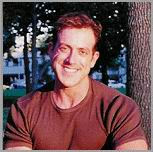
Discovery Health Channel National Body Challenge medical advisor Dr. Pamela Peeke shares her top 10 tips and I'm sharing them with you:
1. Get real and be specific. Write down three or four realistic goals that you can stick to. For example, "I will try to lose one pound of body fat every week. I will walk for 30 minutes minimum five days a week." Avoid fantasy-land goals that will only frustrate you.
2. Get prepared. Throw away all the junk, the processed, and the "bingeable" foods now and replace them with fresh, whole foods like lots of water and veggies. Buy a new pair of walking shoes and find some clothes in your closet you feel comfortable to walk in. During a lifestyle change, if you fail to plan, then you plan to fail!
3. Get support. Whether it's your best friend, spouse, or pet, it helps to have some nonjudgmental and nurturing support when trying to lose weight, especially during trying times.
4. Make daily notes. Research has shown that keeping track of your daily exercise and food intake in a journal or notebook will increase the likelihood of success. Keep it simple, or if you're inspired, write a novel! The key is to hold yourself accountable.
5. Create a food-free reward system. How about a new workout outfit, pair of jeans, shoes -- or what the heck, even a spa treatment, shopping spree, or weekend getaway? You deserve this kind of treatment when you reach your goals.
6. Buy a pedometer. A pedometer keeps track of how many steps you take daily. Wear it every day, around home, work, and while exercising. Your National Body Challenge goal is to increase your steps by 10,000 or more daily! Remember this: You'll burn roughly 100 to 125 calories by taking 2,500 steps (about one mile). The goal during the challenge is to burn 300 extra calories and to eat roughly 200 calories less in a day. This 500-calorie deficit is equivalent to one pound of body fat per week and a healthy boost to your self-esteem.
7. Don't skip breakfast. Research shows that the most successful "losers" never skip it. Try to keep it balanced with some protein, a healthy carb, and a small amount of fat. Here are some examples: an egg-white omelet with fresh berries and a piece of whole-wheat toast, or a skim milk shake with fruit and yogurt.
8. Nix the late-night eating. If you eat a lot of excess calories after 8 p.m., you wear them the next morning. Put a stop to this by making sure you have a healthy dinner consisting of lean protein, veggies, and fruit.
9. Eliminate processed sugars. Processed sugars are carbs that have been stripped of their valuable nutrients. How can you identify these sugars? They are all white: table sugar, pasta, rice, and bread, and they're nothing but trouble, since they kick up your appetite for more of the same.
10. Have a mid-afternoon snack. This will curb your appetite and provide fuel for your after-work walk or workout at the gym. Some great snack ideas include: reduced-fat peanut butter on a multi-grain cracker, a couple of pieces of low-fat string cheese and an apple, cottage cheese with pineapple, or try a low-fat cheese microwaved in a whole-wheat pita.
Get started today, Come on down for a free session:





